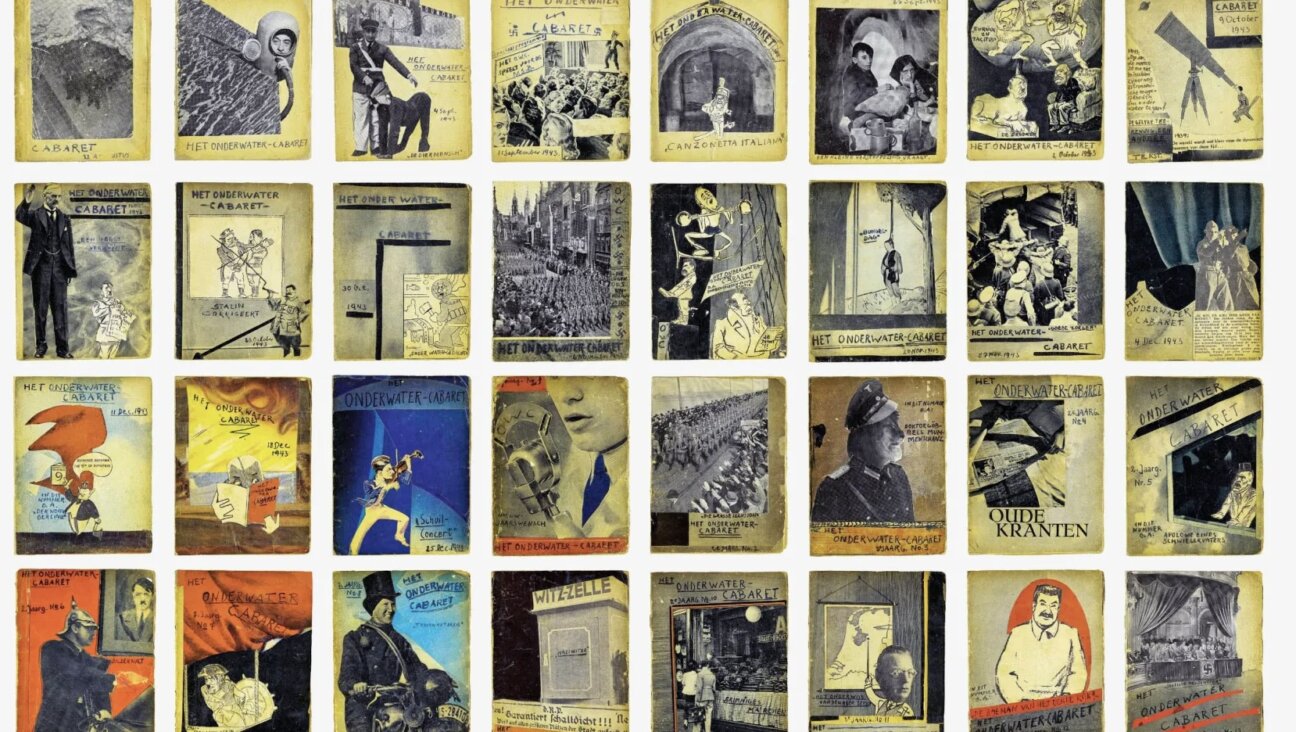Writing About Other Writers
Last week, Joshua Cohen began his review of Leonard Michaels’s “Collected Stories” by praising Michaels’s first collection, “Going Places.” This week, he concludes with a look at Michaels’s second collection, and “The Nachman Stories.” If you missed the first part, click here.
Leonard Michaels: The Collected Stories
Farrar, Straus and Giroux, 416 pages, $26.
Leonard Michaels’s second story collection, “I Would Have Saved Them If I Could,” is wilier than the first — “gone places” and back again, seeming the wiser for it, and the funnier, too. Here, form is turned alternately essayistic, or critical, and poetic, or aphoristic. Many of the collection’s best stories read as if reviews or criticisms of themselves. Which is to say, Michaels’s “I Would Have Saved Them” is the best of his books, and even Michaels seemed to know that, and is throughout trying to let the reader know, as well, in the event that he wasn’t sure. Here, Michaels gives us what is perhaps unconsciously the first installment of his memoir manner. Long before he’d write “Sylvia” (which, strange to say, Farrar, Straus and Giroux is now marketing as a novel) came the story “In the Fifties,” which purported to be, and maybe is, a reminiscence of Michaels’s life during that impoverished early decade:
I worked in a fish-packing plant in Massachusetts, on the line with a sincere Jewish poet from Harvard and three lesbians; one was beautiful, one grim; both loved the other, who was intelligent. I loved her, too. I dreamed of violating her purity. They talked among themselves, in creepy whispers, always about Jung. In a dark corner, away from our line, old Portuguese men slit fish into open flaps, flicking out the bones. I could see only their eyes and knives. I’d arrive early every morning to dash in and out until the stench became bearable. After work I’d go to bed and pluck fish scales out of my skin.
If this is Michaels having or relating a memory, which is to say being himself, or trying to be himself, then this is also Michaels posing, composing, presenting a Romantic, nominally Byronic image (Lord Byron’s letters provide the title of this volume: “I would have saved them if I could,” referring to a gang of thieves whose execution had been witnessed by the seductive because empathetic poet). The other side of Michaels’s prose — imaginative as opposed to factual, documentary or didactic; linguistically minded and wild as opposed to detached or tame — is offered, and mitigated, in “The Captain,” this collection’s last, and the longest story Michaels ever wrote. Professorially, pedantically, its title is derived from the writing and vocation of Michaels’s fellow ersatz Pole, the horrific Joseph Conrad. Phillip Liebowitz has been recalled for this story, as an Ishmael adrift on Manhattan Island, seeking only a promotion and so, a life. He’s arrived at a party at his prospective employer’s East Side apartment, and during the course of this drunken, druggie evening, he’ll have violent sex with this employer’s wife. As for Conrad, this story’s instructive muse, here is his appearance:
It made me feel weak and sick, the apartment, the creepy trivial way I walked in it. Like a man looking for his own pathetic step on a huge ship at sea. A man who has never seen or felt a high sea, never learned to walk its long surge, its remorseless drag and lunge. I needed this moment away from the blazing, loud incoherence of the crowded land, alone, out of sight, to practice walking. And my feelings, while practicing, were like those of a young captain from a novel by Conrad. First opportunity to command. He is alone, pacing the deck, getting a sense of himself. A storm is rising on the horizon. Members of the crew try to call it to his attention, but he has already noticed it, and seen through it to himself. He is sympathetic to their fears, yet more sympathetic to his own. Could I get at that sense of myself required by this storm? I notice it’s a moral storm. The worst kind.
But Conrad isn’t the only refinement here. Aphorisms, epigrams and pithy patter abound in the watery or merely sloshed depths of sociable depravity: “Servants are the price elegance pays to pain.” “Love any hole that feels.” “One thinks meat or languishes.” Franz Kafka, if we are to believe Max Brod’s edition, deleted from the manuscripts of his novels their most aphoristic moments, perhaps feeling that the aesthetic reserve or closed coolness of such formulations might distract from plot, from fevered pacing. Here Michaels makes of cold compression his own manic motion, rendering images and entire dialogues from the philosophical equivalent of Jewish humor’s one-liners, setups and punch lines. At the end of “Storytellers, Liars & Bores,” Michaels manifests this technique in a manner of self-criticism, or censorious homage, as he meets Kafka himself, underwater, in a dream: “He shook my hand,” the narrator relates, “then wiped his fingers on his tie.”
Indexed along with Joseph Conrad, Franz Kafka and the collection’s greatest personality concern, Lord Byron (whose person is fictionalized in the story “Annabella’s Hat”), “I Would Have Saved Them” also saves for Michaels’s own posterity such peers as Fyodor Dostoyevsky, Karl Marx and Leon Trotsky (“Trotsky’s Garden” is a relentless revisionist farce). Such influence put upon the page, the reader realizes that Michaels must have been a wonderful professor, and, too, that he was, as a writer, as a writer of ostensible fiction, at his reluctant best when writing fictionally about other writers, or about or around their work. Michaels was what might be called an engaged writer, then, intellectually, even politically, and though he began as a dreamer, intoxicated with language, he ended soberly, having kept his realism in reserve. His first best subject was his own dissolute, absorptive self, and his last best subject could be called the type of that self — which is made of history, or fact. Such fetish for the received, or the authority of literary history, led Michaels through art, in which nothing can be proved, not even beauty, to philosophy and, ultimately, to the ultimate authority, or law — mathematics; and within that discipline, to the fictional life of mathematician Raphael Nachman, of Los Angeles, Calif.
When Michaels died, he was in the middle of collecting what he called “The Nachman Stories,” and the examples of that hope, widely unknown, and justifiably so, have been given publication here. They would be bad stories, only if bad were a brand of comparison with his earlier work, as these stories are professional, yet lacking. It was as if Michaels had transformed, and revised his affinities, from Isaac Babel to the Babel of the middlebrow, or The New Yorker, in which these stories first appeared. In an age when Larry David of Los Angeles and cable seems to have displaced Woody Allen of New York and film, who in turn displaced the work of the great writers of Jewish America (that is, if culture is to be viewed as the market often views it, which is to say technologically progressive, and popularly successive), Michaels’s late stories of Jewish professionals and tenured academics are, and when they were written already were, dated, overdone. In this collection never to be, Nachman goes to Poland and the racetrack, fails to write a term paper, meets a strange woman and a mathematical rival, gets a haircut and discovers that his best friend’s wife is sleeping with another man. These are modest stories, “domestic” in every respect: middling, niggling — their margins being the edge of the center. Michaels’s style is strangely bored, converted from the laconic to the lackadaisical: “He was aware of a compulsive strain in his thinking,” is about as compulsive as late Michaels ever has the compulsion to be.
Michaels’s collected stories are ultimately illuminating for the way in which they microcosm the culture, not as much in their subject as in the Decline & Fall of their style. Subject is the new idea in American letters, and so in the letters of Jewish America, as well: Witness the number and variety of commercial categories and bins, beginning in academia with the rise of gender, sex and ethnocentric literary studies, and culminating in the demographically refined, niche-marketing of today’s popular novel and memoir. While the “immigrant experience,” to cite just one current subject, has been extravagantly observed, style is met with equivocation, or silence. Midcentury Jewish-American letters certainly had its stylists — at the high end of the spectrum, hear the music of Edward Dahlberg, and Harold Brodkey, for example — and Michaels was the ghetto laureate, our sexiest feinschmecker. From the earliest, his clauses were as poems between commas. His sentences were truncated, terse, even as they’re engaged in the business of moving a character from one party’s room to another. Later, Michaels’s prose slackened, lost its leanness, its truncation expanding into a generous, if pudgy, trunk. Having made himself suburban, Michaels the émigré, the son of immigrants, made good. To him, New York was no longer geography; it was history, the past. California was mediocre, and Michaels’s middle age was, too. He died younger than he should have, though his soul was always old — as old as it had been when he’d begun, writing stories about sex and death in a language of extreme purity and insight. This was back when things still mattered, things like relationships and politics and art. Or else, they might seem to have mattered only in retrospect, when compared with the culture of today: Here and now, Jews and Americans both might hope for a different, more vital identity, which is what Michaels’s best stories offer, in their reminder of a radically meaningful past. Perhaps Michaels was healthier on the other coast, but his writing wasn’t. Perhaps Michaels was happier living the expansive western dream, but his readers now and in the future shouldn’t be.
Joshua Cohen is a literary critic for the Forward.















